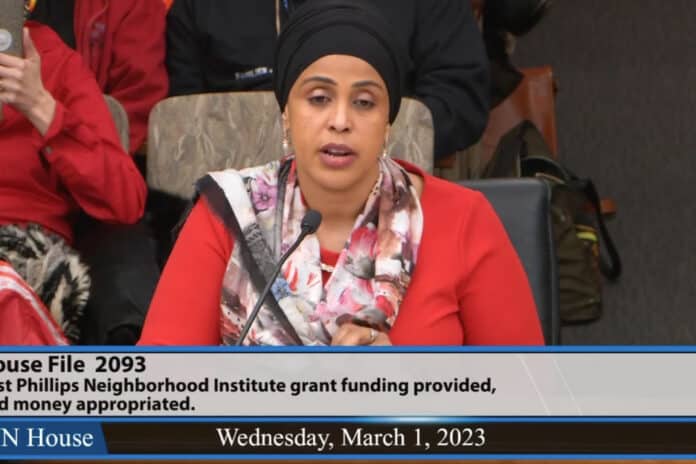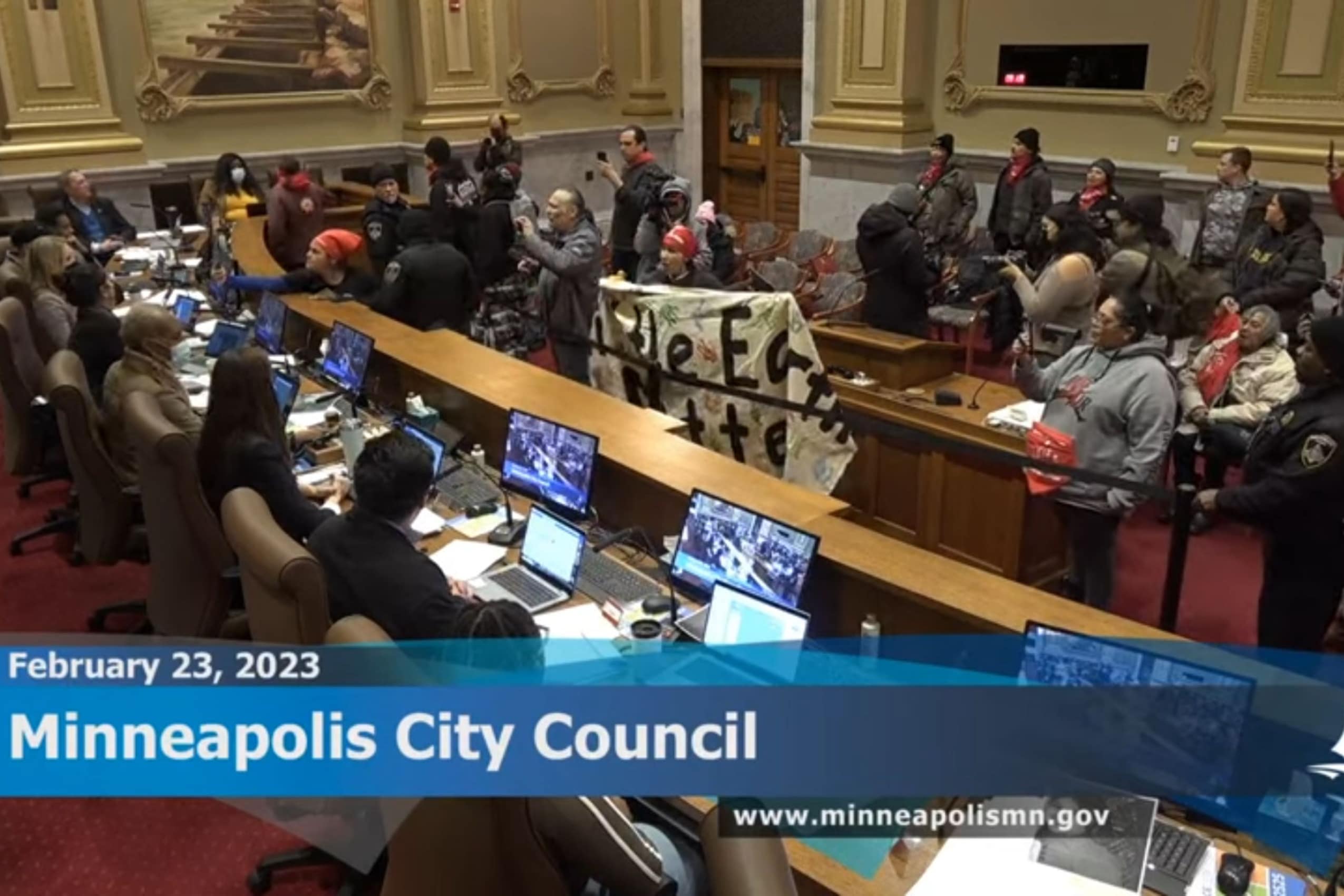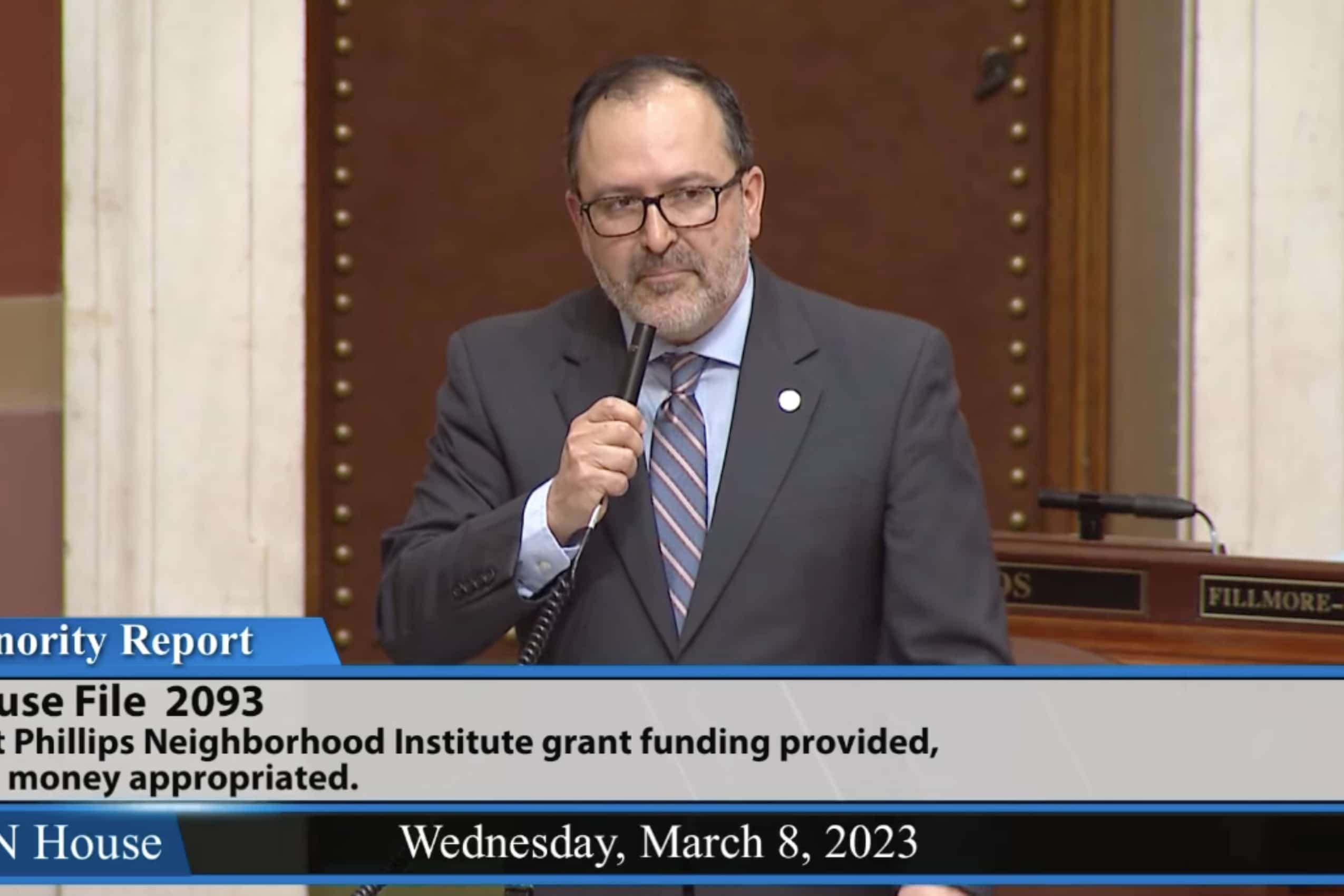
A south Minneapolis neighborhood organization is asking the state legislature for at least $20 million to convert a polluted, abandoned warehouse site into a community-run urban indoor farm, retail space and multi-family housing to address homelessness. And some of its core supporters aren’t playing nice, a Republican lawmaker told his colleagues on the House floor this week.
The bill, HF2903, is sponsored by Rep. Hodan Hassan, DFL-Minneapolis, whose district includes the East Phillips neighborhood, which is home to the site.
In addition to its price tag, which would grant the money for the project exclusively to the East Phillips Neighborhood Institute, Republicans in the House this week cited a few other reasons for their opposition to funding the project with state tax dollars.
First, the Minneapolis City Council already voted earlier this year to turn the former Roof Depot site — which it owns — into a new public works maintenance facility. The aftermath of that contentious decision was chronicled by Twin Cities media last month, as activists affiliated with the East Phillips Neighborhood Institute, listed as the grant recipient for the project in Hassan’s bill, interrupted a City Council meeting and occupied the chambers in protest.

Second, the organization has an ongoing lawsuit against the city over the future of the site. That suit was filed after the city’s plans for the site were approved by the Minnesota Pollution Control Agency.
Additionally, as of last week the East Phillips Neighborhood Institute hadn’t updated its required financial records on file with the Attorney General’s Office since 2019, according to Republican legislators who voiced opposition to the bill on the House floor this week.
Lastly, East Phillips neighborhood activists who attended a March 1 House committee hearing in support of the bill verbally intimidated House members and their staff following the meeting, said Rep. John Koznick, R-Lakeville.
“This proposal was made worse when bill supporters employed abusive tactics aimed at intimidating legislators and House staff into supporting their project,” Koznick said in a statement.
For those reasons, Koznick brought a motion to the House floor on Wednesday to effectively reverse the decision of the House Economic Development and Finance Committee to support the bill.
While the House DFL majority voted down the motion, a bipartisan vote by Republicans and DFLers has indefinitely tabled the bill, which Koznick declared the right move for an appropriation he said would be irresponsible to give the organization.
“Providing millions of dollars to a neighborhood group that has not filed the legally required tax and disclosure documents and for a project on land which they do not own was always a bad idea,” Koznick said.

Bill sponsor Hassan — a DFLer whose district includes the East Phillips neighborhood of Minneapolis — said she believes that future amendments for the bill could earmark up to $100 million for the project. She said that amount of state taxpayer investment will pay dividends for a project she described as a “creative and community-driven solution” to spur economic development in a community where more than one-third of its residents live below the poverty line.
“When built, this farm will serve its residents well by providing jobs, job training, local food, local businesses and community meeting spaces for the East Phillips community and neighborhood,” Hassan said.
Supporters say funding project will help reverse effects of ‘ongoing genocide’
Taking it a step further, community organizers who testified in support of the bill said the funding request for the project would help atone for generational trauma induced on Indigenous residents, many who live in the Little Earth community near the Roof Depot site.
“Initiatives like what this bill supports directly contribute to the reversal of the psychological, spiritual and physical effects of the ongoing genocide, as our people of East Phillips have daily struggles for survival,” said Rachel Thunder, a community organizer who has led several protests over the future of the Roof Depot site.
The location was previously designated a superfund site by the Environmental Protection Agency, which removed contaminated soil from the area, Sahan Journal reported.
The Minnesota Department of Health says the area was used to store arsenic-based pesticides from 1938-1963. Residents fear the demolition will make pollution even worse in their neighborhood.
The city said in a press release that it will complete environmental remediation of the entire site and has offered the East Phillips Neighborhood Institute “two years of exclusive rights for 3 acres of the total site.” A judge has temporarily delayed the demolition while the lawsuit makes its way through the courts.
Hank Long
Hank Long is a journalism and communications professional whose writing career includes coverage of the Minnesota legislature, city and county governments and the commercial real estate industry. Hank received his undergraduate degree at the University of Minnesota, where he studied journalism, and his law degree at the University of St. Thomas. The Minnesota native lives in the Twin Cities with his wife and four children. His dream is to be around when the Vikings win the Super Bowl.
















